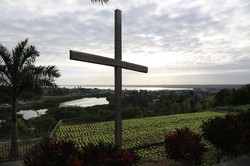Following up on the 2014 General Assembly’s Cuba assignment—made well before the historic announcement in December 2014 easing U.S. sanctions against its island neighbor—the Advisory Committee will be visiting Cuba March 17-21. The Assembly asked ACSWP to work with the Cuba Partners Network to better understand what it means to be the church in an already changing Cuban context. The joint US team will be meeting with representatives of the Presbyterian-Reformed Church in Cuba and other noted analysts to discuss opportunities—and challenges—in a transition period that may include the reestablishment of full diplomatic, commercial, and other relations with Cuba. The Cuba Partners Network, one of the Presbyterian Church (U.S.A.)’s most extensive mission networks, raised funds to make the study possible, building on the many congregation-to-congregation relationships that have developed since the 1959 Cuban Revolution. All ACSWP members going contributed personally to supplement the Committee’s basic meeting budget as well.
Dr. Christine Darden, an Advisory Committee Co-chair, emphasized “this is an official meeting of ACSWP as part of a process to prepare a report with recommendations to the 2016 General Assembly. The report’s focus will be on changes occurring in Cuba, their significance for the public policy positions and mission strategy of the General Assembly, and priorities in our partnership with the Presbyterian-Reformed Church in Cuba.”
In addition to four leaders of the Partners Network, the committee will be accompanied by Revs. JoElla Holman, PC(USA) Regional Liaison to the Caribbean, Valdir Franca, Area Coordinator for Latin America and the Caribbean, both in the World Mission ministry of the Presbyterian Mission Agency, and retired minister Dean H. Lewis, Executive Secretary of the Presbyterian Cuba Connection.
The Presbyterian-Reformed Church representatives have scheduled meetings and visits to mission sites that illustrate the strength and struggles of the Church. Cuban society itself has changed, both in its enduring commitments to equality in education and healthcare, as well as constitutional changes, such as the modification of its initial determined atheism in the 1990s. Two other actions of the 2014 General Assembly, calling for an end to the trade embargo and Cuba’s removal from the State Sponsors of Terrorism list, would encourage both societies to move on from the “Cold War” security emphasis. One group estimates that a repeal of the trade embargo between the U.S. and Cuba could result in a $10 billion annual bilateral trade windfall, while others are concerned that economic and racial divisions could be reopened.
"We are going there to listen to members of the Christian Church in Cuba. We are particularly interested in hearing their perspective about the unfolding situation and learning how that may inform a faithful theological and ethical response for us as U.S. Christians," says Rev. Dr. Ray Roberts, the other ACSWP Co-chair. He welcomed the fact that Matanzas Seminary will be the committee’s base for two of the four days of its brief time on the island, with the other two days in Havana. Ten of the 12 members of ASCWP will attend the meeting, along with one liaison member each from the Advocacy Committee for Women’s Concerns and the Advocacy Committee for Racial Ethnic Concerns, and a social witness advisor from the Office of the General Assembly.
The Rev. Chris Iosso, Coordinator for ACSWP, affirmed the foresight of the three presbyteries that brought the study overture to the General Assembly “It is vital that both churches be proactive in their partnership, for the gospel and for both our societies in this stage of globalization,” says Iosso.
For more than 50 years the U.S. has embargoed Cuban goods, contributing to crushing economic conditions on the island. But in December 2014, President Obama outlined a new normalization policy to be worked out with the Cuban government, revealing the encouragement given by Pope Francis to President Raul Castro, himself, and their respective governments. The changes are likely to include the following:
- Reestablishing diplomatic relations, including opening an embassy in Havana;
- Increased information and communication flow, including internet services; and
- Expanded travel and commerce.
The Rev. Glenn Dickson, Co-chair of the Cuba Partners Mission Network, noted that the consultation actually comes in two parts, with the second part to take place in Washington, DC, and to include conversations with a range of US government and nongovernment groups, as well as representatives from the Presbyterian-Reformed Church of Cuba. A retired pastor, Dickson states, “Our Christian faith is about seeing new horizons and making opportunities for reconciliation and justice. Our partnership with Cuban Presbyterians has also been deeply rewarding on the human level.”
The Presbyterian Church (U.S.A.) has long been an advocate of lifting the trade embargo against Cuba and normalizing relations, going back to the 1969 General Assembly. In 1986, the 198th General Assembly approved a Mutual Mission Agreement between the PC(USA) and the Presbyterian-Reformed Church in Cuba authorizing a partnership that included an exchange of seminary professors and students, joint ministry in peacemaking programs, and exchange programs between youth, women, and other groups. In what may have been a prequel to the current trip, PC(USA) Stated Clerk of the General Assembly Gradye Parsons presented a resolution during the IPRC Synod meeting in Matanzas, Cuba in December, 2014. Additionally, the Office of Public Witness has organized religious delegations from Cuba, led a coalition of denominations and faith-based organizations calling for policy change towards Cuba, and organized meetings with members of Congress and the administration urging greater freedom and expanded relations between the two countries.
[This report will be followed by an update from later in the consultation and study process]

